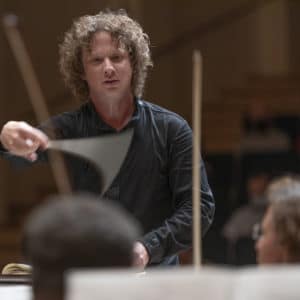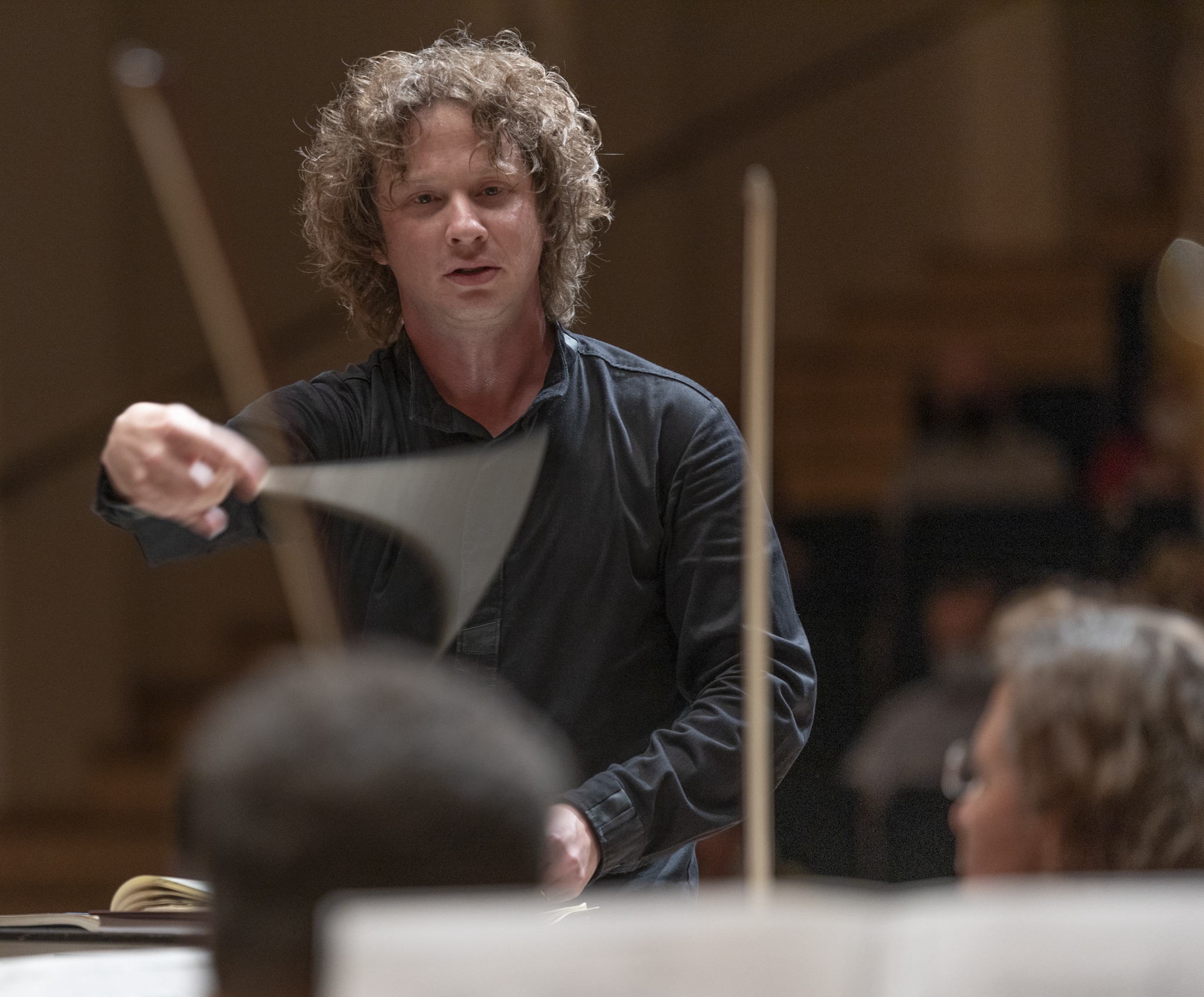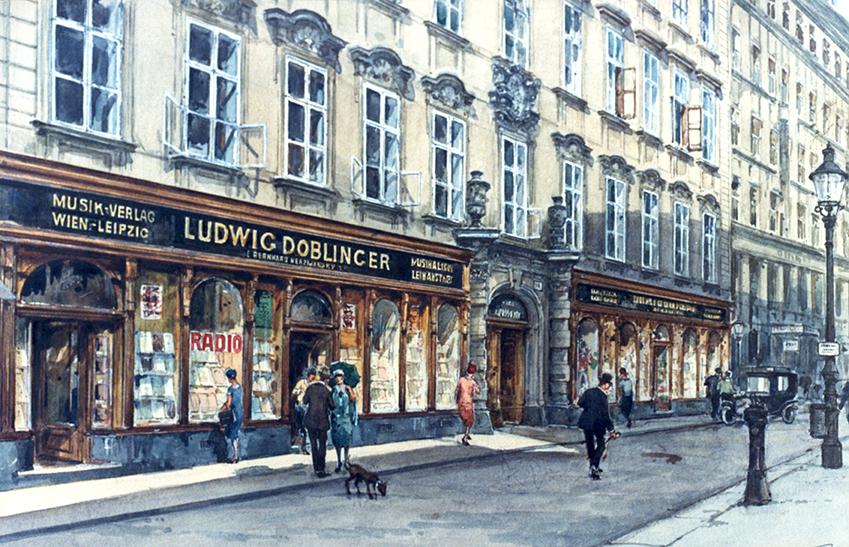History was made last night by a London orchestra….
News…And not a single newspaper has reported it this morning. (UPDATE: The Guardian had a review after noon.)
Slippedidsc.com publishes its exclusive first review of the Philharmonia Orchestra’s season opener by ex-NY Times critic Alastair Macaulay, the first of several reviews that he will write for us this season.
Read this. Reflect on what you missed. One last chance to catch it tonight:
The Philharmonia Orchestra/Santtu-Matias Rouvali – Human/Nature: Music for a Precious Planet series
by Alastair Macaulay
Thursday’s concert at the Royal Festival Hall was historic in more ways than one. The Philharmonia Orchestra, long resident in the hall, was back in action there for the first time since March 2020. Santtu-Matias Rouvali was giving his first concert as the orchestra’s sixth principal conductor. The concert also opened the Philharmonia’s timely new series, “Human/Nature: Music for a Precious Planet.”
These aspects of history will fall into place in due course. The performance was absorbingly sensuous, a riveting meeting of conductor and music. Both works – Also Sprach Zarathustra (1896) and An Alpine Symphony (1915) – were by Richard Strauss, a composer whose music constantly calls for reappraisal. He can easily dwindle into an ultimate example of a “Too many notes” composer and a decadent late-Romantic artist. On this occasion, by contrast, his largeness of spirit afforded an ideal launch to the “Human/Nature” series. Here was Strauss as philosopher, as alchemist, as master-musician.
After the opening Zarathustra, my companion at once singled out Rouvali’s quality of “precise flamboyance”: just the right oxymoron for this 35-year-old conductor. He seems Puckish (energetic presence, twinkling eyes, hair with bunches of curls, marvellous gestures) until you realise the very considerable artistry he deploys. Wave-like impulses pass from his back from shoulder to fingertips; I’ve seldom noticed so fluent a connection between upper and lower halves of a conductor’s arms. Every section of his hands – fingers, palms, wrists – can play a separate part. Yet all this, like the turns of his head and focus of his eyes, is objectively deployed: he’s married to his music without apparent ego.
He grasps all the most elusive aspects of Strauss. The seemingly ornamental details all belong to the overall architecture. The long stretches where rhythm seems a merely incidental device nonetheless have a steady inner pulse. Basic elements of sound are continually contrasted. Throughout each piece, the music is in continual transition. (Strauss called a later work Metamorphosen, but that title could fit these scores too.)
Strauss composed each score with a programmatic framework, in part inspired by his reading of Nietzsche. (It’s fun to speculate whether Nietzsche would have approved. He complained at the lack of dance quality in Wagner’s music: it’s unlikely he would have found more of it in these two Strauss scores.) But Rouvali’s conducting keeps revealing the ambiguity essential to the music. Even when the music is at its most literally picturesque (the waltzing “Dance Song” in Zarathustra, the cowbells and wind machine of the Alpine Symphony), it’s also highly metaphysical. Evocative details pass; suddenly we’re confronted with adventures of the soul.
Zarathustra opens with surely what has become the most famous passage Strauss ever wrote: the cosmic fanfare that Stanley Kubrick used in his film 2001: A Space Odyssey (1968). It perfectly introduces the quality of exaltation that Strauss evokes, and yet it’s remarkable how often he also departs from it. Another fanfare, for example, is altogether sweeter, indeed sugar-coated. Between grandly post-Wagnerian ensembles occur delicately buoyant sequences for solo instruments.
The rapport between Rouvali, always alert and suspenseful, and the Philharmonia is gorgeous. The bright sheen of the violins, the dark edges of the double-basses, the firm declarations of the brass, the piercing entries of oboe and flute were all here vivid elements of the larger tapestry.
An Alpine Symphony, a more rarely heard score and a giant one (133 musicians), here abounded in yet greater epiphanies and contrasts. Lone violins became both exquisite and poignant; cascading torrents of gleaming sound were ecstatic; a fragmented melody for solo oboe over high trembling strings became beautifully troubling. Violence is offset by calm. Visions of the natural world melt imperceptibly into explorations of the psyche. Rouvali and the Philharmonia fluently rose together to every twist in the journey.
Tonight (Friday 1 October), they repeat this programme in Basingstoke. On Sunday 3, they switch to Stravinsky’s Rite of Spring (just two years before the Alpine Symphony in date but in a different spiritual universe) and Bryce Dessner’s Violin Concerto (a world premiere). To follow this musical volte-face will be one of the fascinations of London’s autumn season.
—
Alastair Macaulay

Photo: (c) Laura Luostarinen
UPDATE: The complete concert will be available to stream from 14 October here.






But it was broadcast live on BBC Radio 3 and available on BBC Sounds.
https://www.bbc.co.uk/sounds/play/m001004n
Bravo! Sounds like they all did a very great job.
The timps give as much as one would have expected from Andy Smith.
Top-notch brass “Auf dem Gipfel”.
The tempi were generally well paced.
Everything else than a disappointment!
Well done Jorma, Leif and Hannu for such upbringing!
Andy Smith retired more than 6 years ago.
No mention of some of the fine playing on stage, especially the notoriously violin difficult violin solo, much feared.
I was trying to find one American orchestra playing such a program but alas they’re too worried about programming “equitable” and “inclusive” repertoire.
Maybe you should try just a little harder next time and then you might discover that one of the most prominent US orchestras is starting its season next week with four performances of this rather ambitious program: https://www.laphil.com/events/performances/1420/2021-10-14/dudamel-conducts-strauss .
In 2019 the national youth Orchestra USA programmed this under Pappano
Striking feature indeed
Very interesting to see how perspective varies from country to country.
Historic for whom or for what ?
Zarathoustra and Alpensymphony to open the new tenure of this conductor and the comeback of the orchestra.
And the point is… ? To show how brilliant the conductor is in late XIXth century german repertoire ?
How long will this go on ?
What is the subtext ?
Point 1. This show is clearly about the conductor. Again the « Maestro Myth » in 2021 with 30 year old people in Richard Strauss all over again ?
Point 2. The new chief of the Philharmonia Orchestra of London for an opening concert considers that there is no piece in all the repertoire of the country that welcomes him to make him shine enough in an opening concert ?
Point 3. Let’s not talk about living composers who also have suffered since march 2020. He could not find one.
May I question what may be « historic » ?
Just to give an alternative, Yannick Nezet Seguin, many people here do not like, gave yesterday in Montreal the season opening of his Orchestre Metropolitain de Montreal.
On the program: The creation of a very evocative work by a native composer, Barbara Assiginaak, trained in Munich and Toronto – Ravel Concerto en sol – The (probable) Canadian Première of Florence Price 1st Symphony.
Audience was enthusiastic.
Specially a season opener is also about symbols.
The symbols I see in the Rouvali-Philharmonia Concert are desperately so wrong that indeed they make history.
Indeed – and it’s not as though the Philharmonia have been away for 18 months – they played concerts there in June 2021 with Salonen. Historic how…
The theme of the series sounds interesting, but they all they ended up doing was an all-Strauss concert with two war horses.
“Des Canyons aux étoiles…” would have been a far more appropriate choice, and a piece that deserves more attention.
Congratulations on getting Alastair Macaulay to write for you. He was—by far—the best critic writing about performing arts at the NY TIMES and he is greatly missed. I used to read his dance pieces and wish the TIMES music desk had someone one of his stature, but alas… Great to know he’ll be writing about music for Slippedisc.
Who?!
https://en.wikipedia.org/wiki/Alastair_Macaulay
Pure Fremdschämen.
My attention wandered elsewhere reading this review when I got to the twinkling eyes, curly hair, and waves of impulse from shoulders to finger tips. Compare the surviving film of Strauss himself (or Fritz Reiner) conducting. Maestro Myth indeed.
Having said that I have always liked the Alpine Symphony and it is a pity that its gargantuan demands make it a “special” item to program. Or just maybe that is a good thing: I am not so sure Zarathustra is up to the frequency of performance it receives after its use in the film.
But perhaps the reason I like it so much is the glorious theme that Strauss seems to have remembered from somewhere, the somewhere being the slow movement of Bruch’s Violin Concerto No. 1, also a favorite, but – by contrast – an overexposed one.
But does he sing along occasionally?
‘History was made’….
Hyperbolic nonsense. The Philharmonia performed a concert of safe mainstream repertoire.
If you have an arrangement with them , Norman, shouldn’t you tell your readers what it is?
“Upper and lower halves of a conductor’s arms”?????Really??? “He grasps all the most elusive elements of Strauss”. Why is it that reviewers like to say nothing in flowery terms? And even MORE disturbing is why WE go along with it as if they say things that make sense, have meaning, and is important? Why not whether his beat is clear and precise enough to hold the orchestra together or if all his gestures actually communicate something to the orchestra and audience alike? Did he do things beyond what’s printed on the page to make the piece sound better, more interesting, or more exciting? Gee whiz!
Richard Strauss’s music constantly calls for reappraisal? He’s a legend. His tone poems are some of the most beloved in the repertoire, and Der Rosenkavalier and Salome are certainly considered two of the greatest operas.
Norman,
Can you please post another pic where it doesn’t look like Rouvali is whisking eggs and parmesan for a frittata?